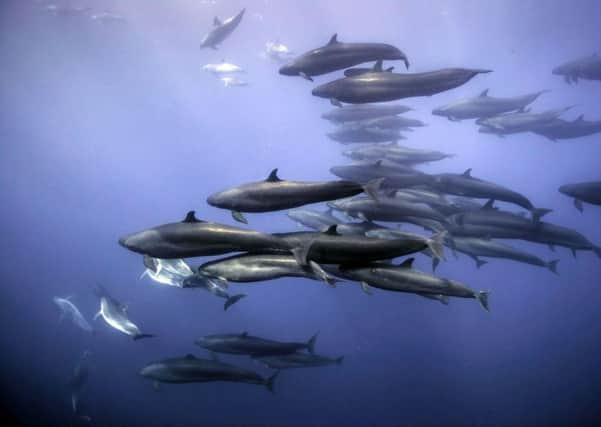Ben Roberts: Why plastics play such an important environmental role


Unfortunately, the message that many people have taken away from Blue Planet, including it seems Prime Minister Theresa May, is that the British plastics industry does serious damage to the ecological balance of the UK and, indeed, the world.
Earlier this month, Mrs May told BBC Breakfast that her Government was at the forefront of “the movement against plastics”.
Advertisement
Hide AdAdvertisement
Hide AdNot surprisingly, this sweeping statement was met with disbelief and dismay by the UK plastics industry, which has an annual turnover of £25.5bn and is the third largest manufacturing sector in the country, providing 166,000 jobs. These crucial facts are lost in the hysteria whipped up by anti-plastic campaigners, whose persistent and ill-informed vendetta is having a seriously detrimental effect on this vital industry.
So much so that the industry is now having a difficult time recruiting staff and encouraging investment.
It’s time to put the record straight. First up, and with due deference to Blue Planet, 82 per cent of the plastic that enters the ocean comes from Asia (notably from rivers like the Ganges); 16 per cent comes from the rest of the world; and only two per cent from the US and Europe. So the guilt some of us might feel about the state of the oceans, and the effect that might have on marine life, is misplaced.
Equally importantly, it is crucial to understand that the problem is not plastics, which benefit both society and the environment. The problem is about how we treat plastic waste, which is a valuable and recyclable resource. Plastics themselves make a massive contribution to reducing the UK’s carbon footprint, they minimise food waste and they save energy. For example, recycling just one plastic bottle saves enough energy to power a 60W light bulb for six hours and recycling one tonne of plastic bottles saves 1.5 tonnes of carbon. Plastics also saves lives – with the protective plastic vests which police officers wear saving more than 3,000 lives over the past 30 years. Here at Roberts Mart, one of Yorkshire’s leading independent flexible packaging manufacturers, we are acutely aware of the importance of protecting the environment and of reducing plastic waste.
Advertisement
Hide AdAdvertisement
Hide AdFor example, flexible packaging saves resources, such as food and product waste that occurs on the way to the store and while on display.
Packaging typically reduces supermarket food and product waste by about one third. Packaging also displays vital information to the consumer such as any allergy advice and nutritional content.
Without packaging we could not purchase liquids, gels, powders or out-of-season fruit. We would also have significant problems with food safety and hygiene.
Food wastage would increase – this would have negative environmental impacts. Products sold loose have been found to suffer from greater instore waste, in some cases leading to increases of 20 per cent.
Advertisement
Hide AdAdvertisement
Hide AdDamage and losses would occur to goods in the retail and logistics chain.
Despite what you may think plastic is not difficult to recycle. The UK recovers 80 per cent of all plastic packaging. The UK is also the seventh best recycler of plastic pack-aging waste in Europe (out of 30 countries).
Plastics packaging can be recovered and recycled into all sorts of items, such as packaging, bags, car components, furniture, building materials, paint pots and even kerbstones.
Flexible packaging is not widely collected from most households because recycling targets are set on the basis of tonnes, and plastic is a very light material. Some councils prefer to collect heavier waste than plastic packaging.
Advertisement
Hide AdAdvertisement
Hide AdHowever, the number of councils offering the collection of various recyclables has been increasing steadily.
A sea change in public awareness about the environmental benefits of plastics is needed – and needed fast. Countless independent studies have illustrated that if plastics are not used and there was, instead, recourse to alternative materials, the energy consumption used in product manufacturing would increase – as would the volume of waste.
It is absolutely right that we should be outraged by what is happening to marine life in the ocean. It is unacceptable.
But it is also unacceptable, and counter-productive, to lay the blame about this at the door of the UK’s plastics industry. Our industry is far too valuable an economic resource to be treated as a political football.
It is high time a more nuanced and informed debate took place, which is based on facts, rather than prejudice and ill-informed opinion.